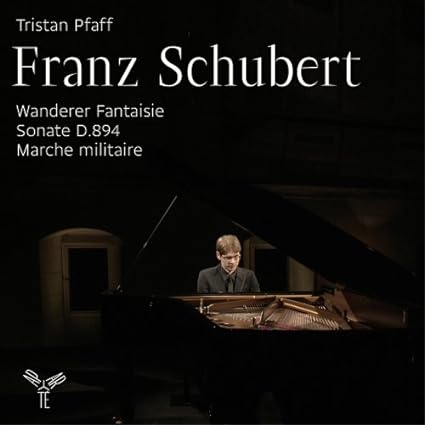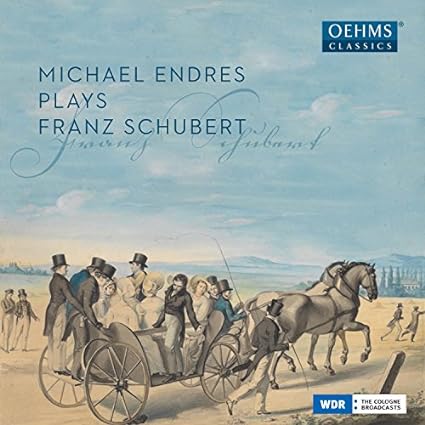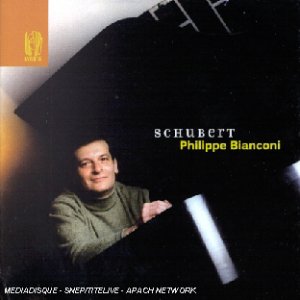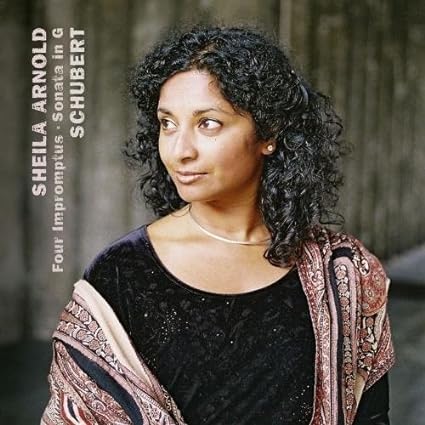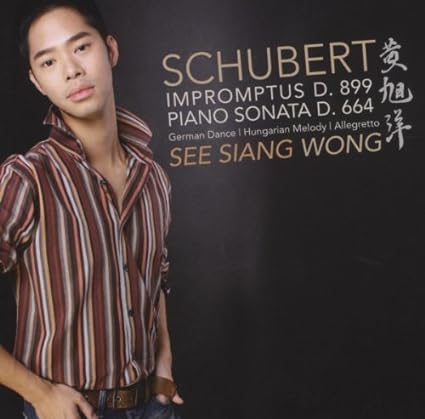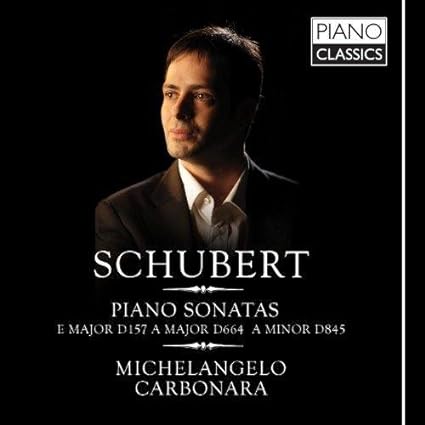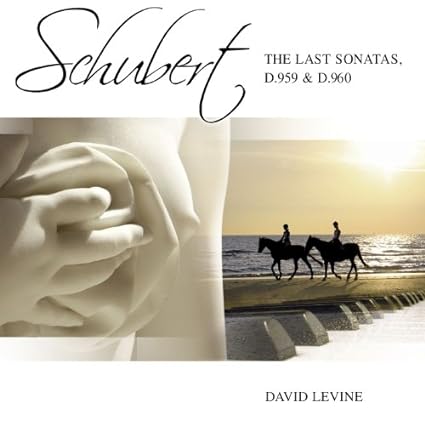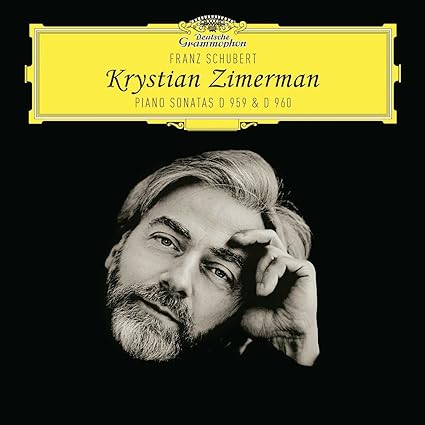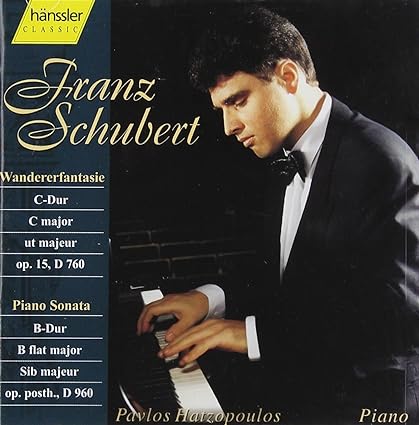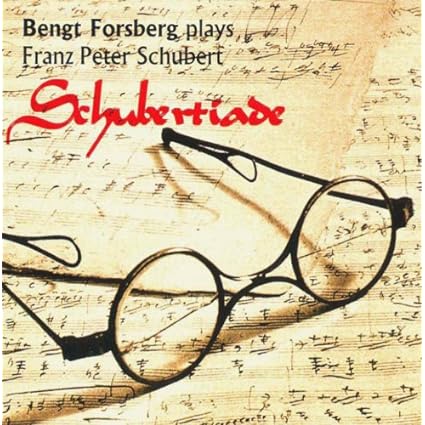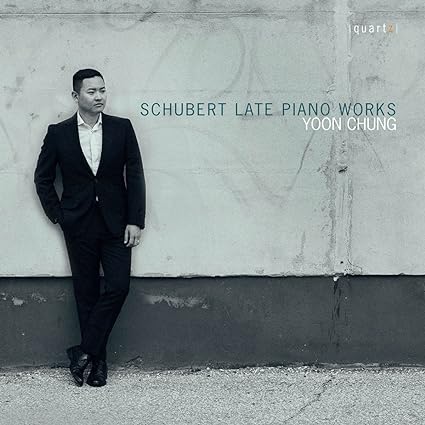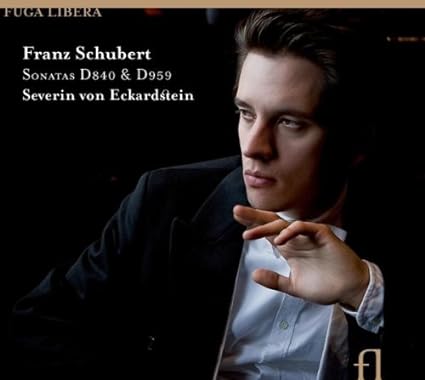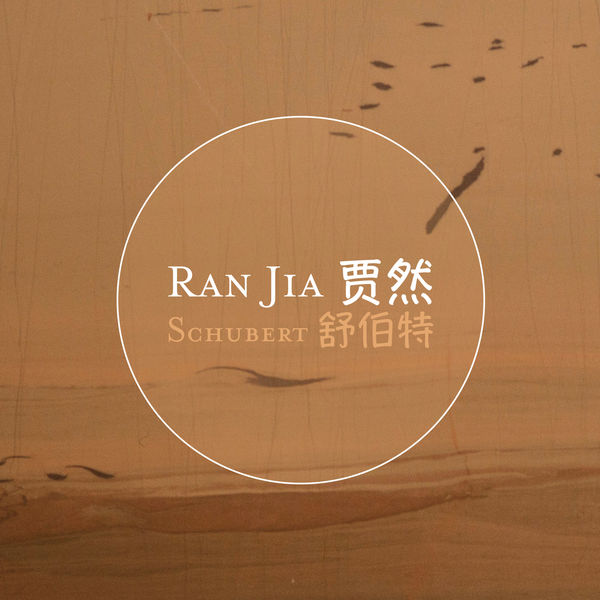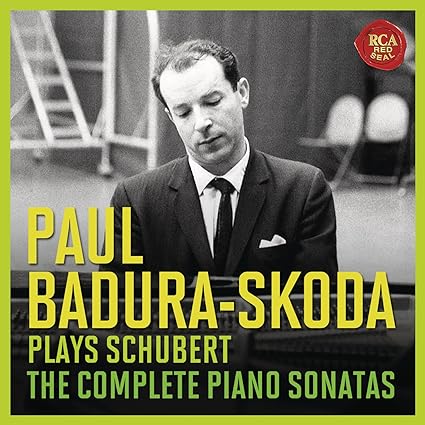
I fancy PBS recordings. His two LvB sonata cycles are very fine, the HIP cycle on Astrée, especially. The other PBS recordings I have heard have all been good, though his HIP Schubert on Arcana shows the limitations of older keyboards in producing the lyrical Schubert style I prefer. Others may very well be more taken by HIP Schubert, of course. Anyway, since PBS is the only pianist to record Mozart, Beethoven, and Schubert sonata cycles on both modern and period instruments, when this reissue of PBS’s RCA Schubert on modern grands became available, I thought I really ought to get it.
Disc one of the CD set is given over to the first disc of the second volume from LPs. This shift in presentation allows for this set to be presented in Deutsch number order, with some duplicate recordings tacked on at the end of the set. To the recordings: D157 opens with a light, crisp, very classical Allegro ma non troppo that mostly just sounds a bit clipped here or there but otherwise quite nice. At least until the middle of the movement, when PBS aggressively ornaments the music to a degree I've not heard before - including in his later HIP set. At first, it catches the listener off guard, but it works. The Andante is fairly straightforward, and displays both lyricism and solemnity, though not too much of the latter, while the Menuetto is just a tad slow, but still works quite well. D279, with a completion by PBS of D346 for the fourth movement, sound both lyrical and lightly dramatic, but rather than flowing with a lovely legato, PBS plays more staccato, making some passages a bit jagged, though fun. The rest of the sonata stays quite light, and the completed D346 Allegretto melds well. A very good start.
Disc two includes three sonatas: D459/D459A, D537, and D557. In D459/D459A, PBS plays with more substance than the works on disc one, with an especially effective Adagio. Better still is D537, which in the opening movement blends cheer and sorrow, two traits the pianist himself writes that he sees as part of Schubert's tone, and the blend makes the piece more late-ish Schubert than normal. The second movement, slower and somber, still has a dance-like component to the playing, while the Allegro vivace largely alternates between more playful, scampering playing and more purely beautiful melodic playing. PBS puts substantial interpretive meat on the musical bone in one of the best versions, and maybe the best version, I've heard. D557 sounds flowing yet peppy, with hints of urgency to go with the intrinsic lyricism. PBS elevates this little sonata a bit, too.
Disc three. D566 opens the disc, and it has the same serious and lyrical style displayed before, and a copious helping of pedal noise, which is uncommon for such old recordings. The whole thing is very fine, but the Allegretto deserves special praise for its beautiful lyricism. D568 follows. PBS seems to make this sonata even more serious and "late" Schubert sounding. To be sure, there's lyricism and lightness there where appropriate, but the playing just sounds more purposeful and serious, sort of like Brendel's approach, but better. Once again, PBS really delivers in the slow movement, an Andante here. The playing style would sound very much at home in something like D894.
Disc four. The disc opens with the D571/604/570 "sonata", with the outer movements completed by the pianist. The opening movement sounds like a Liszt transcription of a Schubert lied - one of the good transcriptions. Moody and melodic, it sounds splendid. The other three movements seem more like early stand-alone piano pieces, not too surprisingly, and the work doesn't hold together especially well, but each movement works on its own. D575 follows. PBS keeps the piece light, clean, and lyrical throughout, but he imbues the whole thing with more of that late-ish style depth, and the final movement is exquisitely beautiful at times. It's really quite excellent. The disc ends with D612/613, with the outer movements finished by the pianist again, and the best is saved until last. PBS plays with a light touch, and the music is bright and beautiful and precious and equal parts playful and eminently lyrical. While PBS doesn't conjure late Schubert sound, there's something intensely alluring about the music and playing. In this set, PBS is turning out to almost own the early sonatas – though Wilhelm Kempff prevents that in the end.
Disc five. This starts in on the real good stuff, namely the first of two recordings of D664, along with D784. First, though, is D625/505. Okay, this is good stuff, too, with Badura playing with slightly tamped down lyricism and slightly emphasized drama, again rendering the music sort of like a Liszt transcription of Schubert. The concluding Allegro sounds like a pre-echo of the concluding movement of Chopin's Second Sonata. PBS plays D664 more or less with endless lyrical beauty, with a bit of heft or forlornness tossed in for effect. It works extremely well. In the booklet notes, PBS writes that he considers D784 to be Schubert's creative reaction to the onset of his illness, and this translates to tense, agitated playing in the Allegro giusto, though the aged sound doesn't really allow for thundering dynamic range to really emphasize the underlying tumult. The Andante is quick, lyrical, and a bit sad, while PBS ratchets up the intensity in the Allegro vivace, with slightly beefier fortissimo playing, though again the aged sound limits ultimate impact. Still, this is an excellent version and caps off yet another fine disc.
Disc six. It opens with D840, with PBS' completions of the third and fourth movements. While the Moderato contains plenty of lyrical playing, it also displays ample agitated, almost angry playing, though as with D784, the dynamic range of the now aged recordings deprives the listener of some sonic impact that was obviously present in the playing. Too, it takes on a sense of darkness and dreariness present in the great song cycles. The Andante keeps the whole late lied feel to it, with a sense of tension to go with the lyricism. The two completed movements work well enough, though the sonata sounds somewhat lopsided, with the weightier first two movements. The first recording of D845 follows. PBS opts for the fast, agitated, tense, biting approach in the opening movement, and the dynamic range of the recording helps out more here, and he comes as close as anyone I've heard to matching Friedrich Gulda in terms of intensity in the immoderate Moderato. PBS backs way off in the opening of theme of the Andante, but he then reverts to a tenser, more biting style for some of the variations. Both the Scherzo and Rondo go the unusually robust route, too, with a lyrical sense popping up at times in the Rondo, but this performance isn't really about that. This is a
great performance of this sonata.
Disc seven. The first recording of D850 starts things off. Coming right after a tense and fast D845, the somewhat more restrained, in terms of tempo, Allegro vivace requires a bit of adjustment - one bar, maybe two. PBS doesn't skimp on dynamics and effective accents, though, that is sure, and the movement remains forward moving. The Con moto is nicely paced and has a sense of melancholy mixed in, and while there's ample lyricism, the movement doesn't really flow as well as some others. Nonetheless, it works very well, indeed. To the extent one can kvetch about the second movement, it would be well-nigh impossible to do so about the Scherzo, alternating between more assertive, playful playing, and lovely lyricism. It hits the spot. As does the Rondo, which opens in a delightful, sweet, dancing manner, and PBS keeps the tone light throughout. Overall, this is one of the best versions I've heard. Next up, D894. PBS brings the Molto moderato e cantabile at 17' even, so it's got room to breathe. He opens slowly and introspectively, and he never really plays too fast, but he does speed things up and play some louder passages with some nice heft. Of course, one cannot expect the titanic dynamic range of Michail Lifits or Arcadi Volodos in an old recording, and PBS doesn't even seem to be trying to play with such range, but the effortless, flowing forward momentum make that largely irrelevant. The Andante continues along in a similar vein, with the forte passages comparatively more intense than in the opening movement. In the Menuetto, the outer sections display some tumultuous playing mixed with more beautiful playing, while the middle is tender and lovely. The Allegretto is more relaxed in overall feel. Competition is stiffer in this sonata, and if PBS doesn't quite match up to my favorites, this recording is still very fine, indeed.
Disc eight. D958 opens it. The Allegro has some nice contrasts. It starts a bit hard and moderately fast, but then quickly backs way off in both tempo and dynamics. Returns to the opening material start off slow and gradually build up speed and strength each time before reverting to slow playing. At times, the playing borders on being too slow, and some may very well think it is. The same is true of the Adagio, which starts off quite slow. It lacks enough drama to really make it work, at least in the first theme and every return. The second theme is more vibrant and dramatic and works a bit better. The Allegro keeps the slow approach, but works better owing to a tunefully solemn style, which carries over into the less successful trio. The concluding Allegro finally finds PBS playing with less restraint, with a propulsive rhythm, and some seriously clear left hand playing. Unfortunately, tape overload and distortion is seriously clear, too, as it was from time to time earlier in the piece. This isn't so much a problem with the second theme, which is of the endless melody variety of playing, but it is for almost everything else. The first of (sort of) two recordings of D959 follows. It retains the sub-par sound, though it sheds the too-slowness of D958. PBS keeps things lyrical and moving along, but coming so relatively soon after Zimerman's super-human playing (and SOTA+ sound), this is more plain, though more plain also means more introverted and smaller scale, with more conventionally scaled dynamic contrasts. The Andantino is of the slow, mostly subdued, somber variety, with just enough melodic goodness to satisfy before the tumultuous middle section. The Scherzo is alternately energetic and calm, and mostly lyrical, though one can hear some hard hit notes here and there. The Rondo comes close to an endless melody approach much of the time, the more turbulent development excepted, and if the sound was close to SOTA for its age, it would have been even better.
Disc nine is devoted to the first recording of D960 in the set, though it was the second one released. It comes in at forty-one minutes. PBS plays the Molto moderato at a lengthy 19'19" but it doesn't sound particularly slow most of the time, has a bit of edge in louder passages, some agitation in the repeated left hand notes, and more of a tense classical vibe than a dark romantic one, though around halfway through it becomes a bit more forlorn. The Andante doesn't become the center of the work, but it does sound starker, more austere, though not without lyricism, and some nifty left hand playing. The Scherzo sounds mostly light and fleet, as does the Allegro ma non troppo, though PBS does infuse a bit of bite in places. Overall, it's a good rendition, but ultimately it's not what I tend to listen for.
Disc ten contains D959 and D960. The first, second, and fourth movements of D959 are the same recordings as on disc eight. This Scherzo was recorded in 1967, while the one on disc eight was recorded in 1971. This one is about thirty seconds slower, and with adjustments for tempo, leaves the same general impression as the other recording, with the exception of the notably slower and sweeter trio and some repeated use of rubato. D960 however, is an entirely different recording, made in 1967, that was replaced by the 1971 recording that appeared on disc nine. A bit slower across the board than the other recording, it is noticeably different. The Molto moderato, at just under 20', is darker and more lyrical, and PBS throws in some nearly jarring accelerated passages for some reason. Overall, despite those passages, and the even more dated sound, the overall style is more my speed. The Andante is not as stark as the later recording, instead sounding more lyrical and more urgent. Both the Scherzo and Allegro ma non troppo also sound more lyrical than the later recording, with a slightly fuller and darker tone. This D960 does not rate as one of my favorites, but I do prefer it to the later recording presented on disc nine.
Disc eleven contains 1968 recordings of D664 and D845. In D664, the first two movements are very slightly slower than the take on disc 5, which when combined with the slightly warmer sound, results in an even more attractive endless melody style that works just swell, and probably just a smidge better than the other recording. D845 is a few seconds slower in all movements except the Andante, which is about a minute longer. The Moderato displays some of the same agitated and tense playing as in the prior version, just moderated a bit. The entire second movement is more relaxed and lyrical than the prior recording, and it works extremely well given the approach. But it lacks the near-"wow" factor that comes with the more robust reading. The Scherzo and Rondo both balance lyricism and energy very nicely. This recording considered on its own is superb, but it is overshadowed by the blockbuster 1971 recording.
The set ends with a twelfth disc devoted to a 1967 recording of D850. The Allegro vivace is about thirty seconds slower than the previous version, and it makes a big difference. The sound is chunkier and clunkier for much of the opening, and though the movement picks up a bit, it doesn't flow as well. The dynamic contrasts are excellent, but the effect is muted. The Con moto comes in at a minute longer than the prior version, and somewhat against expectation, it flows slightly better, though the sense of melancholy is not as apparent, and some of the playing sounds more urgent. The Scherzo and Rondo both have basically identical timings, but offer something a bit different. The Scherzo adds some striking, more potent playing in the trio, while the outer sections sound amply lyrical and rhythmically bouncy, with some patches of hard-hitting playing. The Rondo is mostly light fun, with some hard-hitting playing, though as with the Scherzo that seems an attribute of the recording more than the playing. Overall, the 1971 recording presented on disc seven is superior, and it is obvious to me why it was selected to go in the LP box set of the complete sonatas.
Overall, this is an outstanding set of Schubert’s sonatas, one of the best I’ve heard. It bests PBS’s later, HIP set. Only D958 ends up being a letdown, with everything else at least very good. Especially good are the early sonatas, and D845 and D850. Sonics are not up with best of the time, let alone today, but that doesn’t matter a whole lot in the end.
Unlike other big box reissues I've bought, the artist's fingerprints are all over this one. Badura-Skoda penned the detailed liner notes himself, concluding with a statement that perhaps he ought to rerecord D960 (I hope he's serious, and I hope he hurries), and the remastering notes indicate that he was also very active in the process, to the point of insisting on the editing of some single notes and modifying tempos. This set very much reflects how the pianist wants the recordings to sound.


